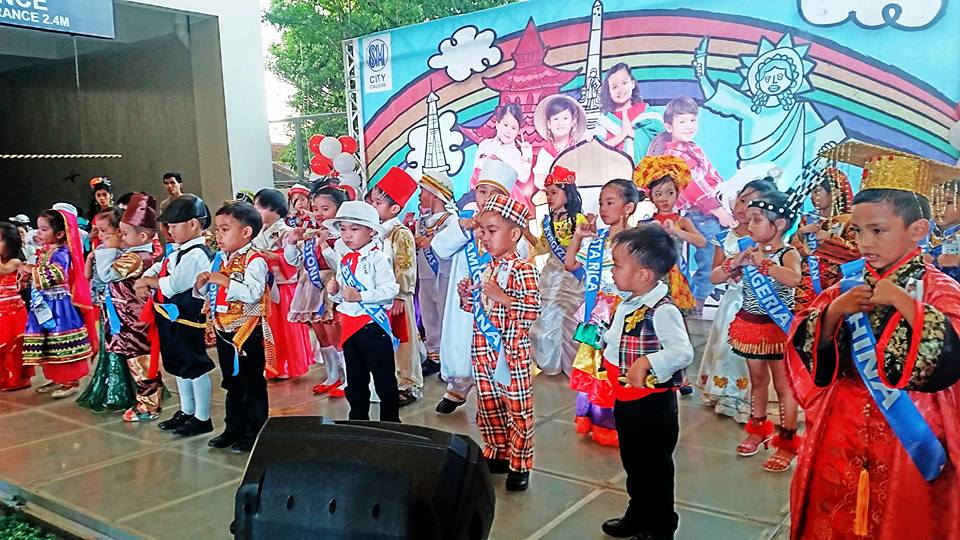The amalgamation of nation-building and cultural observance forms the bedrock of societal identity and unity. At its core, nation-building encompasses the processes through which a state strengthens its cultural, social, and political foundations. In juxtaposition, cultural days serve as platforms for celebrating diversity, commemorating historical milestones, and fostering a sense of belonging among citizens. But does the celebration of culture truly contribute to the cohesive fabric of national identity, or could it inadvertently deepen existing societal rifts? This counterintuitive query highlights the complexity of human interactions within the national context.
Nation-building is often regarded as a top-down endeavor, primarily orchestrated by governmental entities. It involves the creation of institutions, societal norms, and policies that aim to unify diverse groups under a common national ethos. However, cultural days—festivals, commemorations, and celebrations of national significance—present avenues for grassroots participation in this larger narrative. These events advocate for inclusivity by embracing various cultural expressions and ideologies within the framework of national identity.
A prime example is United Nations Day, celebrated globally on October 24. This day symbolizes a collective acknowledgment of international cooperation and unity. Countries around the world proclaim their commitment to fostering peace and understanding among diverse cultures. Interestingly, United Nations Day provides a challenging juxtaposition: Can we genuinely build a nation without addressing the intricacies of cultural differences and individual identities? Ignoring these complexities could lead to alienation rather than unification.
For a nation to thrive, it must not only address economic and political issues but also invest in the cultural realm. Cultural days play a crucial role in shaping social interactions, as they offer citizens opportunities to engage with one another through shared experiences. These events typically manifest through parades, performances, workshops, and educational programs. Each activity radiates a unique cultural perspective, enriching the overall national tapestry. However, the challenge arises when certain cultures proliferate while others languish in obscurity, raising questions about equity and representation.
The celebration of culture also poses intricate challenges in the realm of historical narratives. Some cultural days commemorate painful chapters in a nation’s past, posing poignant questions about how history is remembered and taught in contemporary society. For instance, Indigenous Peoples’ Day has emerged as a counter-narrative to Columbus Day in the United States, challenging long-held perceptions regarding exploration and colonization. Does such reimagining of cultural observance enhance or destroy national unity? Paradoxically, highlighting uncomfortable truths may lead to division yet could become an avenue for healing and reconciliation.
Cultural days, while promoting unity, must also address environmental sustainability. In an age where climate change looms large, the intersection of cultural celebration and environmental consciousness warrants examination. Striking a balance becomes essential as nations navigate contemporary challenges. How can the festivities associated with cultural day initiatives adapt to promote eco-friendly practices while remaining true to their original essence? This inquiry forms a vital component of meaningful nation-building in the 21st century.
Moreover, the global movement towards cultural preservation offers a potent solution to the challenges posed by rampant globalization. As popular culture proliferates worldwide, local customs can easily fade into obscurity. Celebrating unique cultural practices serves as a powerful antidote to this trend, revitalizing interest in age-old traditions and fostering respect for heritage. Yet, how do nations ensure these practices remain relevant in a rapidly changing world? The role of education in perpetuating cultural appreciation becomes paramount, necessitating curriculum reforms that honor both local and global narratives.
Furthermore, cultural days provide fertile ground for dialogue surrounding social justice and equity. Many marginalized communities utilize these occasions to amplify their voices, advocating for recognition and integrity within the national landscape. This transformative power underscores the potential of cultural observances to challenge systemic inequities. However, the question remains: can cultural days transcend mere tokenism and inspire enduring change? The answer lies in the collective will of the populace to engage in advocacy beyond one-off celebrations.
As nations progress through periods of flux and transformation, the intersection of nation-building and cultural day observances invites thoughtful convergence of ideas. It is imperative that such intersections do not become stagnant; they must instead evolve and address contemporary societal and environmental imperatives. The central challenge therein revolves around the criticality of representation and participation. Is every voice truly heard during these cultural festivities, or do some remain silenced? Only through inclusion and active engagement can national identity flourish without exclusion or marginalization.
Ultimately, the dialogue surrounding nation-building and cultural observance is intricate and multilayered. It requires ongoing reflection as communities navigate the delicate balance between celebrating diversity and fostering a cohesive identity. As cultural days unfold, the challenge of nurturing a genuine national spirit amidst diversity grows ever more pertinent. By embracing the complexities and contradictions inherent in this dialogue, societies have the profound opportunity to cultivate a truly inclusive national identity—one that honors the past, cherishes the present, and paves the way for a sustainable future.
